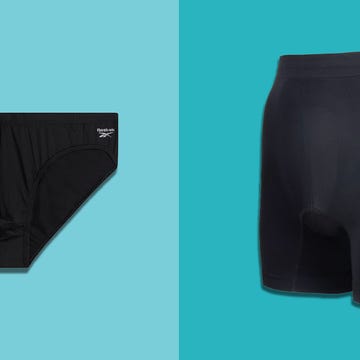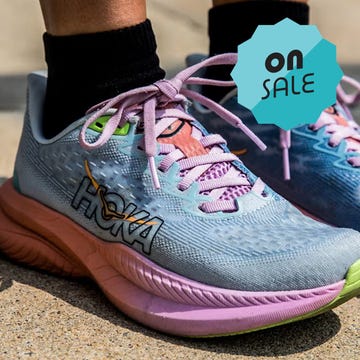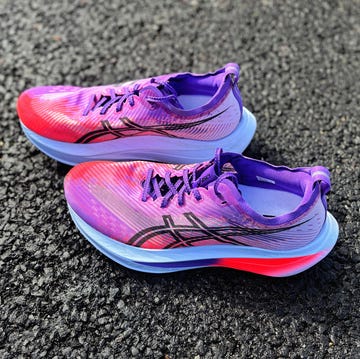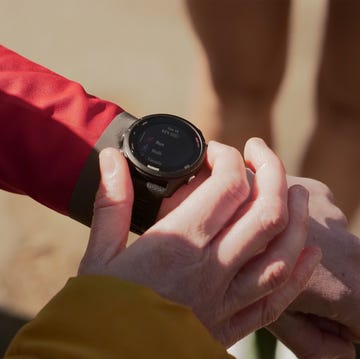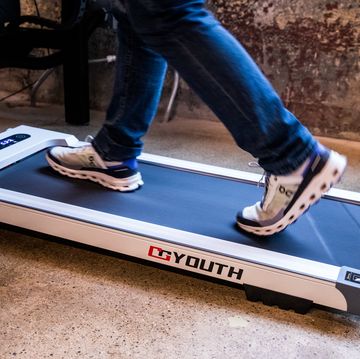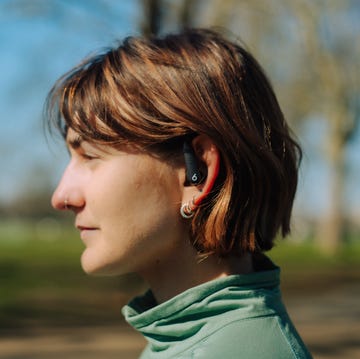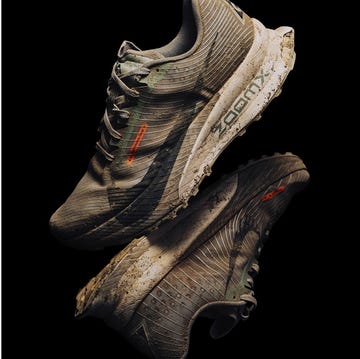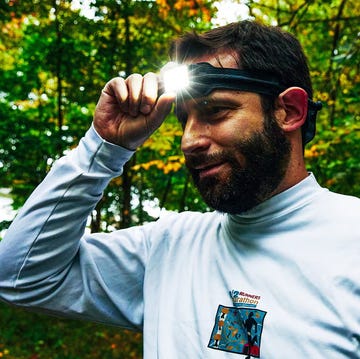The fitness wearables market has come on leaps and bounds in the past decade, and smart rings are the latest addition to the world of running watches, wireless earbuds and fitness trackers.
A smart ring condenses some of the technology you’d find in a sports or smartwatch into a piece of kit that can be worn on a finger. Most have NFC chips or Bluetooth connectivity, enabling syncing to a smartphone, and they pack a number of sensors that can track metrics like steps, heart rate, sleep and stress. For runners in particular, this can provide valuable data in terms of optimising training and recovery.
What does a smart ring do?
Smart rings provide real-time insights into a number of physiological metrics, depending on the model. This can include:
What everyone's reading
- Heart rate and heart rate variability: Useful for tracking both cardiovascular effort during exercise and recovery at rest
- Sleep tracking: Including total sleep duration, time spent in each sleep stage (light, deep and REM) and overall sleep efficiency
- Activity levels: Most rings will count steps and estimate calories burned, and some offer basic exercise tracking (though they’re generally better suited to recovery than recording workouts.
- Blood oxygen (SpO2)
- Recovery metrics: Often displayed as a ‘readiness score’ which combines factors like HRV, resting heart rate and sleep to indicate how prepared your body is to take on training
- Skin temperature: Some rings track changes in body temperature, which can be helpful for flagging illness, menstrual cycles or signs of overtraining
How we test
All of the products below sport our Runner’s World Expert Tested logo, which means they've been put through the wringer by our expert gear testers. Each smart ring has been worn consistently for a minimum of a month by at least one member of the team — on daily runs, walks, during sleep, at rest, and in everyday life.
Where relevant, we compared the wearables to older versions we've tested previously, as well as evaluating the rings' performance in terms of heart rate accuracy (at rest and during exercise), battery life, comfort, durability and app functionality. We also noted whether the data provided was genuinely helpful for runners, be it for training, recovery or health monitoring.
The smart rings we've recommended are those that offered meaningful insights, reliable tracking and seamless usability.
The best smart rings
The latest iteration of the Oura Ring is one of the most discreet and stylish smart rings on the market – but there’s more to it than meets the eye. Behind its sleek titanium design lies a powerful suite of sensors that track everything from resting and workout heart rate to body temperature, blood oxygen levels (SpO2), and HRV (heart rate variability), offering you a detailed picture of your overall wellbeing.
But what really sets the Oura Ring apart is its highly detailed sleep tracking, which goes far beyond just recording how long you’re out for. The accompanying smartphone app breaks down your sleep stages, disturbances, and efficiency, delivering personalised insights and advice. A daily ‘Readiness Score’ also helps to guide training decisions – flagging when you might want to skip that tough session and prioritise recovery instead. It's also compatible with Apple Health and Google Fit, meaning it plays nicely with other wellness apps.
However, the device isn’t without drawbacks. The ring’s matte finish is prone to scuffs with daily wear, and there’s a steep price tag (which varies depending on what finish you opt for) – especially when you factor in the monthly subscription required to unlock most features. Still, for data-driven runners, it remains a compelling (and comfortable) option.
Read our full Samsung Galaxy Ring review
The Samsung Galaxy ring is a sleek and comfortable option with a pretty rounded selection of tracking and insights and a competitive battery life compared to the other rings. The lack of subscription is another big plus. The drawback is you’ll need a Samsung or Android phone to use it. iPhone owners, look elsewhere.
It's a touch thinner than the Ultrahuman Air and the Oura Ring, coming in three colours (black, silver and gold), all with scratch resistant titanium and a clever concave design that really helps to avoid bumps and scrapes.
A suite of sensors comprises of an accelerometer, optical heart rate sensor and skin temperature sensor, but there’s no GPS. It can, however, piggy back your Android phone’s GPS to log distance in running and walking workouts.
While most other rings charge on small docks, the Samsung Galaxy ring ‘dock’ is built into a wireless charging case – a bit like a headphones case. It’s quite big compared with other smart ring docks but we found it far less losable and it's handy for adding more power on your travels.
The Ring monitors your overall sleep to provide sleep insights with most of the areas covered, including a Sleep Score, total sleep time, sleep stages, sleep consistency and snoring. It was quite good at logging the times we got into bed and fell asleep, matching the EightSleep mattress for drop off times. However, it was prone to missing chunks of final morning sleep and our sleep score varied quite broadly across various comparison devices.
Still, daily activity monitoring is motivating, it will automatically track walking and running workouts with good reliability — no need to repeatedly tell the app what you’ve been doing — and heart rate accuracy matches the Garmin HRM 600 chest strap for the main stats.
If you’re a paid-up member of Samsung Galaxy, the Ring makes more sense, fitting well into that universe alongside the Galaxy Watch and phone. However, we didn't feel it was as comprehensive as the Oura Ring, which nails the balance of deep insights served up in a more human way, with an app that’s both more detailed and more intuitive to use.
Not only does Amazfit produce some of our favourite budget-friendly running watches, but its Helio Ring makes a compelling case for a more affordable option in the smart ring realm.
On your finger, the Helio Ring feels impressively lightweight and it’s perfectly comfortable to wear around the clock. The titanium outer shell proved plenty durable through everyday wear and workouts, though it’s worth noting that it’s currently only available in one finish and three ring sizes. That limited range may make it trickier to find a perfect fit – and if you regularly wear other rings, particularly silver or gold ones, it might not blend in as seamlessly as the likes of the sleeker Oura Ring. That said, we were impressed by the Helio’s premium feel, especially given its sub-£150 price tag. It certainly doesn’t look or feel like a budget device.
Functionally, the ring tracks standard health metrics like heart rate, sleep, readiness, and stress levels. Unlike the Oura Ring, there’s no auto-detection for workouts and only four workout types to choose from – but running, happily, is one of them. You’ll need to launch sessions manually via the Zepp app, which also acts as your hub for health insights and recovery scores. You'll need your phone on you, too. While the app is easy enough to navigate, it lacks the depth and polish of more established platforms like Oura. That said, it's still capable of things like women's health tracking, with the body temperature sensor predicating the start of your menstrual cycle and ovulation days.
Battery life is rated at around four days, which is respectable, but falls short of competitors like Oura (which can last up to a week). You’ll need to stay on top of regular charging, especially if you want to maintain continuous sleep and recovery tracking.
Overall, though, this is a well-built smart ring that offers accurate data tracking, easy syncing to popular fitness apps (something not all smart rings can do) and doesn't require a pricey subscription.
Read our full Ultrahuman Ring Air review
The Ultrahuman Ring AIR slides a host of tiny, advanced sensors – including heart rate, movement and skin temperature sensors – onto your index finger to track everything from daily activity and nightly recovery, to when’s a good time to stop drinking coffee or put down your smartphone. Along with a very detailed partner app, it serves up a raft of health, fitness and recovery boosting insights. The drawback is it can all be a bit overwhelming –information overload. ‘I desperately wanted more customisation of our insights in the app,’ said one tester. ‘The Ultrahuman AIR could be infinitely more useful if you could prune the data you don’t want.’
When it comes to workout tracking, the ring offers auto workout detection but, as with the Oura Ring, you have to retrospectively mark periods of activity as a workout, one by one.
It's nicely wearable, coming in three core finishes with matte and shiney variations, and it's happily subscription free.
If you're really, really into biohacking, the AIR reaches far, but for general health, activity, sleep and recovery purposes, there are more straightforward options.
Why choose a smart ring instead of a fitness tracker?
If you’ve always seen a fitness tracker as a bulky addition to your wrist, then a smart ring might be the tech-focused accessory for you. The more premium offerings even manage to juggle being discreet with some slick designs, doing for smart rings what the Apple Watch did for smartwatches. Finally, a finger-worn device is ideal for logging your sleep if you’ve struggled to get comfortable wearing a wrist-worn device in bed.
Ali is Runner’s World UK's e-commerce editor, specialising in testing and reviewing the latest running shoes, gear and tech, as well as finding the best deals during sales events such as Amazon Prime Day and Black Friday. She has tested hundreds of products from the biggest running brands, including Nike, New Balance, Adidas, Hoka and more. Ali speaks to some of the world’s top experts across footwear, running apparel, fitness equipment and nutrition to help runners make smart decisions when shopping online, from glucose monitors to help you nail your fuelling strategy to compression boots to aid your recovery. Ali has worked in health and fitness journalism since 2017. Before joining Runner’s World, she was health editor at Future Plc, working across brands including Coach, Fit&Well, T3, TechRadar and Live Science. A Boston qualifier, she’s completed 12 marathons, including four of the World Marathon Majors (only Tokyo and Boston left). Her proudest achievement to date? Running a five-day 220km ultramarathon across Tanzania. Just don’t ask her to race a 10km…

A 53-time marathon finisher, 14-time ultramarathoner (including a top 100 position in the Marathon des Sables) and cofounder of The Run Testers, a YouTube running gear reviews channel, Kieran has been testing the latest running gear for more than a decade. A sub-3 marathon runner, you'll find him covering everything from virtual reality and smart scales to the latest health trackers. Kieran is also passionate about using the latest technology to hack his health in search of marginal gains and you'll always find him with a running watch on either wrist.











